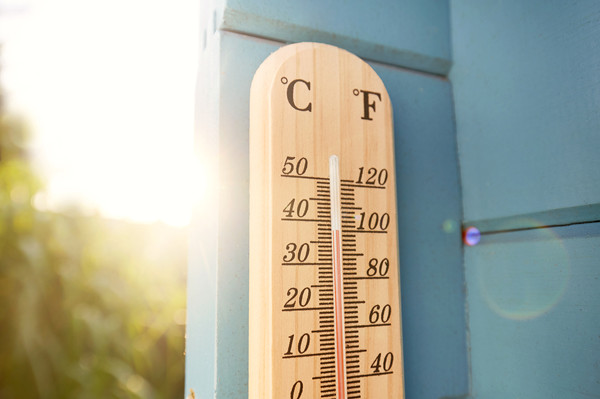From hot to cold: 7 temperature adjectives in Chinese
Weather is always a popular topic -and often a reason to complain!-in casual conversations, wherever you are and whatever language you speak, including with your colleagues and friends in China. Here are some Chinese adjectives to describe hot and cold temperatures, so you can easily join weather discussions and express yourself.
1. Warm
暖和 (nuǎn huo) refers to warm and comfortable weather. You typically experience this kind of weather in spring and autumn when it's neither too hot nor too cold.
暖和
nuǎn huo
warm; nice and warm
You can use the following sentence to describe pleasant and mild weather:
今天很暖和。
jīn tiān hěn nuǎn huo.
The weather is warm today.
2. Hot
热 (rè) is the most common word that Chinese people use to express "hot".
热
rè
hot
This word is versatile because it can describe not only the weather, but also food and drinks, and even personal feelings. Here are a few examples:
今天天气很热。
jīn tiān tiān qì hěn rè.
The weather is hot today.
我要一杯热咖啡。
wǒ yào yī bēi rè kā fēi.
I'd like a cup of hot coffee.
我觉得很热。
wǒ jué de hěn rè.
I'm feeling so hot.

3. Scorching
In Chinese, 炎热 (yán rè) can only be used to describe the weather, and its degree of "hotness" is higher than that of 热 (rè).
炎热
yán rè
scorching
In summer, the temperature in some parts of China (especially in the south) can reach up to 40 C, and 炎热 (yán rè) is exactly the word you need to describe this kind of scorching weather.
今年的夏天异常炎热!
jīn nián de xià tiān yì cháng yán rè!
The summer was unusually hot this year!
4. Hot and stuffy
During the summer season, the weather is often very humid in China, and combined with high temperatures, it sometimes makes people feel quite sultry.
The character 闷 (mēn) means "stuffy", which can be used to describe a room that hasn't been ventilated in a while.
闷热
mēn rè
hot and stuffy
If you dislike hot and stuffy weather, you can express it to your Chinese friends by saying:
我不喜欢闷热的天气。
wǒ bù xǐ huān mēn rè de tiān qì.
I don't like hot and stuffy weather.
5. Cool and pleasant
As the sweltering summer fades and October arrives, southern China's climate begins to cool. For those pleasantly cool mid-autumn temperatures, Chinese people often use the word 凉快 (liáng kuài).
凉快
liáng kuài
pleasantly cool
After a heavy rain, the air turns cool and pleasant. Here's how to say it in Chinese:
一场大雨过后,天气凉快下来了。
yī chăng dà yǔ guò hòu, tiān qì liáng kuài xià lái le.
It cooled off after the downpour.

6. Cold
Now, let's explore the word that describes "cold".
冷
lěng
cold
Similar to 热 (rè), 冷 (lěng) can be used to describe the weather, food, and one's personal feeling. For example:
上海的冬天很湿冷。
shàng hǎi de dōng tiān hěn lěng.
Winters in Shanghai are damp and cold.
我点了两个冷菜。
wǒ diǎn le liǎng gè lěng cài.
I ordered two cold dishes.
我的手很冷。
wǒ de shǒu hěn lěng.
My hands are feeling cold.
7. Freezing
In winter, 寒冷 (hán lěng) can be often heard in northern China, where the temperature could reach as low as -30 C.
寒冷
hán lěng
freezing cold
If you visit northern regions during the winter, keep these phrases in mind to express how you feel about the weather:
这里极其寒冷。
zhè lǐ jí qí hán lěng.
It's extremely cold here.
我感到了刺骨的寒冷!
wǒ gǎn dào le cì gǔ de hán lěng!
I felt the biting cold!
Literally "I-felt-piercing to the bones-cold"
Source: That's Mandarin
For any concerns regarding copyright infringement, please reach out to us at intlservices@shanghai.gov.cn.

